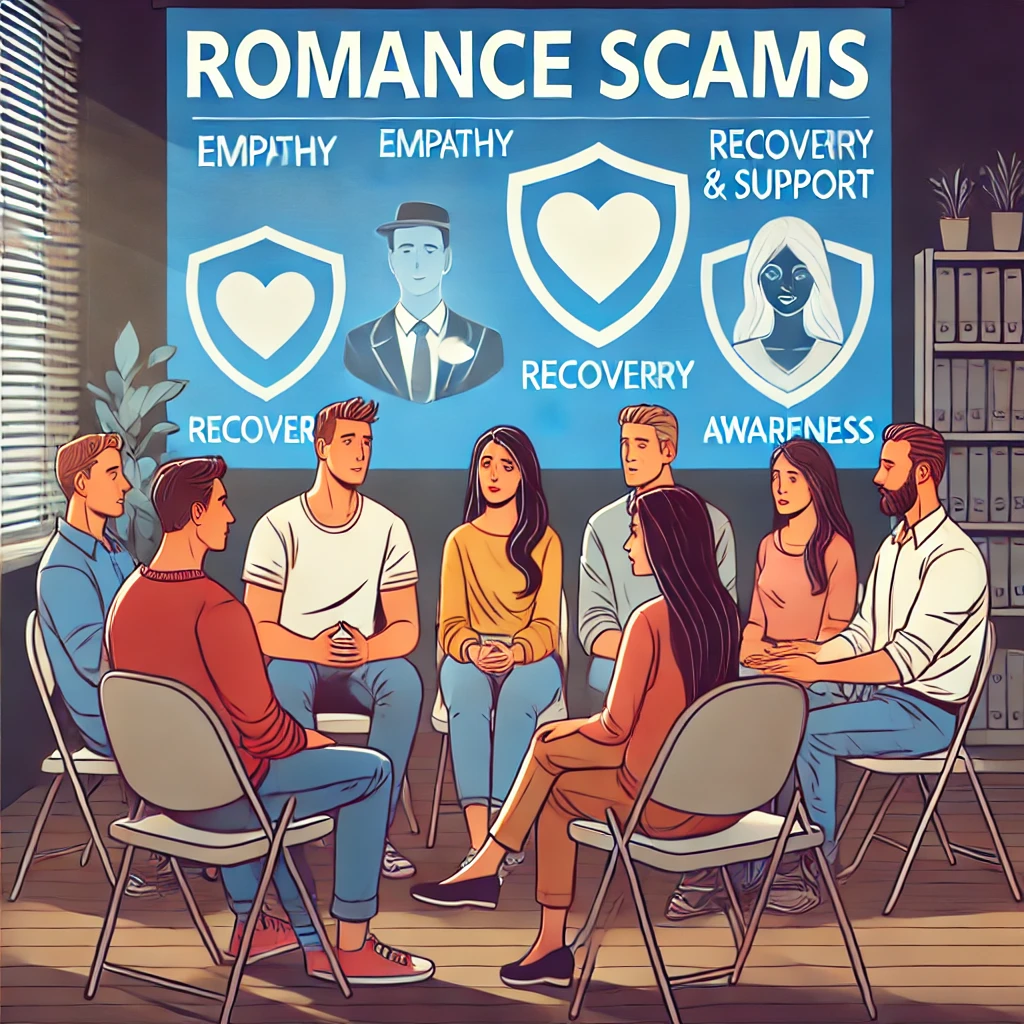While romance and espionage may sound like quite an odd pairing, history is full of examples where love and intelligence operations crossed each other in interesting ways. With the recent digital love scams, the role of romance in state-sponsored spying has come quite a long way: from handwritten love letters to today’s digital romance scams. This paper shall further delve into this intriguing world of romantic espionage, focusing on the infamous Russian romance scams flooding the headlines for the past few years.
During the Cold War, espionage was a game of strategy and duplicity, and romance proved to be one of the most pervasive tools within that shed. Russian spies—most famously, Mata Hari—used charm and seductive skills to draw secrets from those in their thrall. These early examples of romantic espionage laid the groundwork for contemporary methods that, while modernized in their techniques, remain based on an age-old scheme: using love to garner intelligence.
Since the Cold War era, the KGB and other agencies have expressed interest in using love to obtain information. They train agents to seduce foreign diplomats and military personnel who hold key positions to get hold of classified information from target countries. Emotions did no doubt cloud judgment and made these targets highly vulnerable.
Well, to some extent, the tactics have changed a bit today with the introduction of technology. Still, romance—real or pretended—is a weapon as much today as it was then for the spy. Virtually begun, that which started to physically have taken on an expanded circle of reach and anonymity, allowing these operations to globalize now easily.
The Russian romance scam is one of the most advanced types of scams, whereby swindlers, usually presenting themselves as true romantic interests, attract victims online. This is targeted at obtaining money or confidential data from their targets by manipulating their feelings. They can be anything from simple extortion using money to an intricate scheme of identity theft and harvesting intelligence.

In most cases, such confidence tricksters operate via different online sites such as dating websites and social media. They create engaging, believable profiles with stolen or concocted pictures and details. They start chatting up their victim to gain their trust by developing an emotional relationship—after the victim has fallen in love with them. They come up with creative issues that need financial aid; for example, having a medical emergency or wanting to meet them but needing money for traveling expenses. Such requests usually involve some kind of rush where quick action is expected from the victim.
One such incident involved a group of fraudsters who, using dating websites, impersonated beautiful Russian women. They worked their potential victims through vast emotional connections to achieve the ultimate win: getting them to send buckets of cash for phony emergencies. Another case involves another big scam ring uncovered, wherein romance scams were used to gain perversion insider access into corporate systems for harvesting sensitive information for sale on the black market.
In another example, over $100,000 was fleeced by an American man by scam artists who promised to seek out a foreign, long-term relationship with a Russian woman. She contrived many trials and hardships, intuitively making her amour feel as though he had been led on several times to send money for some made-up crisis. By the time it finally got through to him that he was a victim of fraud, this perpetrator had vanished—leaving him emotive and financially in tatters.
These are authentic examples of just how sophisticated these scams can be and how they are developed to sort of get at people emotionally. The scammers know how to build a persona that seems believable, with stories surrounding it that are so intricate that sometimes it’s hard for victims to realize the deceit until it’s too late.
Russian romance scammers are at their best when it comes to psychological manipulation. They work patiently and usually gain trust by sending daily letters of affection and concern. They use elaborate stories, if not most, to evoke sympathy and urgency—leaving one responsible for their well-being. In other words, this emotional manipulation is going to reduce vigilance in the victims, hence being more accessible to manipulate.
Mirroring techniques, symmetric interests, and values are also used by scammers to achieve a feeling of compatibility and deep connection. Thus, they might very well use intermittent reinforcement, switching the person backward and forward between affection and distress to keep them off-balance emotionally to make them comply with their specific demands.
Furthermore, by exploiting the natural human inclination for companionship and love, predominantly targeting lonely or otherwise vulnerable people, scammers can flaunt their deceptive ways. They try to give their victim the impression of having a real connection with them through flattery, attention, and fabricated shared experiences, which makes it quite difficult for such victims to realize the deceit.
Modern romance scams heavily rely on online social media and other websites to make contact with potential victims. Dating apps, social networking sites, and even professional working space networks are all utilized in initiating first contact. They set up very appealing profile pages, complete with photos and detailed personal information, to lure targets into their trap.

What is more, these platforms are offering scammers a vast pool of potential victims and an environment in which they can sustain numerous deceptively deluded relationships concurrently. The anonymity provided by the internet ensures scammers that minimal risks will be involved while, at the same time, making the manipulation of many victims easier over time.
Many scammers go to great lengths to keep up appearances by stealing photos, creating fake social media profiles, and sometimes even hiring people to be their friends or family members. Such practices are used to enhance the credibility of the scammer to increase the victim’s emotional investment in him.
Not only are the traditional kinds of scams at play, but also tactics in the realm of cyber espionage. Scammers make use of phishing emails, malware, and other cyber tools to gain access to personal information and financial data. Cyber tactics are then linked very much with romantic approaches and hence make the scams more effective and challenging for users to be able to tell them apart.
The scammer may, for instance, send a very innocent email with an attachment or link. When he clicks it, the scammer will have access to stores of important information that are stored within their devices, which can be used later in cases of identity theft or financial fraud or can even be sold to malicious players.
Cyber espionage tactics in romance scams add a whole layer of sophistication to the practice, rendering tracing incredibly hard for enforcement. In this case, victims may not be aware they were compromised until significant damage has already been caused, which puts the importance on vigilance and awareness.
The media has been very instrumental in constructing people’s notion of romance scams by Russians. News and documentaries related to this form of cybercrime simply depict the emotional and financial ruin caused by scandals, therefore boosting consciousness and caution among potential victims. However, media representation may also romanticize issues like espionage, which blurs the thin lines between fact and fiction.
Movies and television series often romanticize spies and love affairs. People will thus view scenarios that, in real life, are scams as exciting and full of adventure. Such romanticism, therefore, tends to impair the ability to recognize scamming situations in real life for what they indeed are: severe and harmful.
Such frauds can be brought to light through the media, thereby raising public awareness and familiarizing prospective victims with these types of schemes to recognize and avoid them. Balanced and accurate reporting would counteract the romanticized portrayals, thus giving realist insight into the risks involved.

While in popular culture, spies and their love interests come off as glamorous, real-life instances are far from somber. Actual victims of romance scams sustain huge emotional trauma with massive financial losses. The difference between the reel and real-life incidents underlines the need for better awareness and education among people.
The reality, however, is that the result of falling victim to romance fraud is devastating. As a rule, victims feel deep shame and a sense of betrayal, which makes it hard for them to turn to somebody for help or even to report the scamming. Losses could be huge financially; some lost their life savings or ran up huge debts.
In contrast, fictional depictions usually gloss over these harsh realities to emphasize instead the thrills and drama of spying. This can create a damaging distance, an entirely wrong perception about what romance and espionage are all about, and how the elements combine to affect the people involved.
That is why romance forms a considerable part of espionage, which raises many ethical questions. Any manipulation of a person’s feelings for gathering information is lying and exploiting. Furthermore, the moral dilemmas extend to personal dues that both spies and their targets must pay, as the emotional toll can be profound and long-lasting.
Ethically, the willful manipulation of emotions in strategic directions is exceptionally troublesome. It entails some degree of breach of confidence and exploitation of the basic human need for attachment and love. The moral implications become even weightier when considering long-term psychological effects on the victim, who may have trust and relationship issues years after the scam is over.
There are ethical considerations even for the spies or scammers themselves in terms of the impact of their actions. This is a deceitful practice, which involves moral and emotional costs: living with guilt, for example, and facing the consequences of manipulative behavior.
Protection will depend on recognizing the common signs of a romance scam. Demands for money, inconsistencies in the telling of personal stories, reluctance to meet in person, and very rapid confessions of love are all critical red flags. Vigilance and care in judging an ulterior motive are essential in spotting such scams before one becomes their victim.
Other red flags include poor grammar or the ability to use language, being coy about personal information, and getting steered on in conversations concerning financial or personal crises. Most scammers avoid video calls and face-to-face encounters. They have several excuses capable of keeping them faceless.
Staying vigilant and questioning odd behaviors/actions can help avoid being scammed. Instincts should be followed, and advice should be sought from friends and family in spotting suspicious interactions.

In case you feel you have become a romance scam target, places where you can find help and support networks are plenty. Some, like the Federal Trade Commission and the Better Business Bureau, give tips on how to proceed regarding scams. Internet forums and support groups provide an atmosphere for sharing experiences or advice.
Victims can contact local authorities and agencies that deal with consumer protection, which may help track down identity theft and reduce scams. It is also possible to seek counseling support services to deal with the emotional trauma after being scammed.
Educational material and social campaigns raise awareness to prevent romance scams. It is then crucial to keep updated and vigilant in order not to become the prey of these deluding schemes.
The intricate relationship between romance and espionage grew from replicas of traditional love letters to today’s digital scams. The Russian romance scam presents one of the evilest aspects of this junction: the need for awareness and caution in today’s digital domain. Timely awareness of the tactics and learning the signs will help people not fall prey to these highly sophisticated methods. As we continue to navigate the complexities of modern romance, it has become essential to balance the allure of connection with vigilance to be safe.